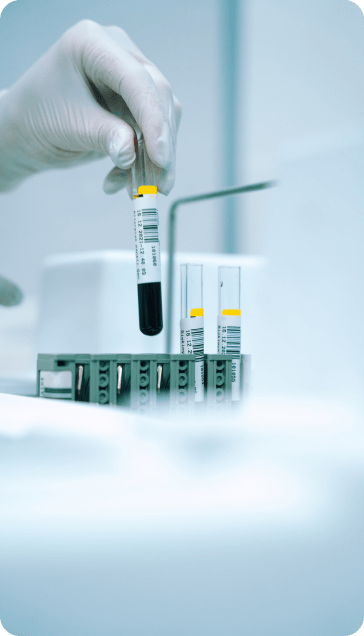List of Included Tests - 11 Tests
This test measures the amount of nitrogen in your blood that comes from the waste product urea. A small amount of urea nitrogen in your blood is normal. If you have too much urea nitrogen in your blood, your kidneys aren’t filtering it properly. You may have a condition that’s affecting your kidneys’ health. A BUN test is done to see how well your kidneys are working.
Uric acid blood test, also known as a serum uric acid measurement, determines how much uric acid is present in your blood. The test can help determine how well your body produces and removes uric acid. Uric acid is produced when your body breaks down foods that contain organic compounds called purines.
A sodium blood test measures the amount of sodium in your blood. Sodium is a type of electrolyte. Electrolytes are electrically charged minerals that help maintain fluid levels and the balance of chemicals in your body called acids and bases. Sodium also helps your nerves and muscles work properly.
Chloride is very important in maintaining the acid-base balance and PH. It plays with sodium an important role in regulating the osmotic balance of body fluids.
A urine microalbumin test is a test to detect very small levels of a blood protein (albumin) in your urine. A microalbumin test is used to detect early signs of kidney damage in people who are at risk of developing kidney disease.
This test measures how well your kidneys are performing their job of filtering waste from your blood. Creatinine is a chemical compound left over from energy-producing processes in your muscles. Healthy kidneys filter creatinine out of the blood. Creatinine exits your body as a waste product in urine
urine analysis is one of the most routinely performed lab test to detect UTI and DM and to suspect renal disease like glomerulonephritis ,nephrotic syndrome, pyelonephritis and renal diseases
A potassium blood test measures the amount of potassium in your blood. Potassium is a type of electrolyte. Electrolytes in your body help control muscle and nerve activity, maintain fluid levels, and perform other important functions. Your body needs potassium to help your heart and muscles work properly.
A calcium blood test measures the amount of calcium in your blood. Calcium is one of the most important minerals in your body. You need calcium for healthy bones and teeth. Calcium is also essential for proper functioning of your nerves, muscles, and heart.
Preparation
- Fasting is not required




